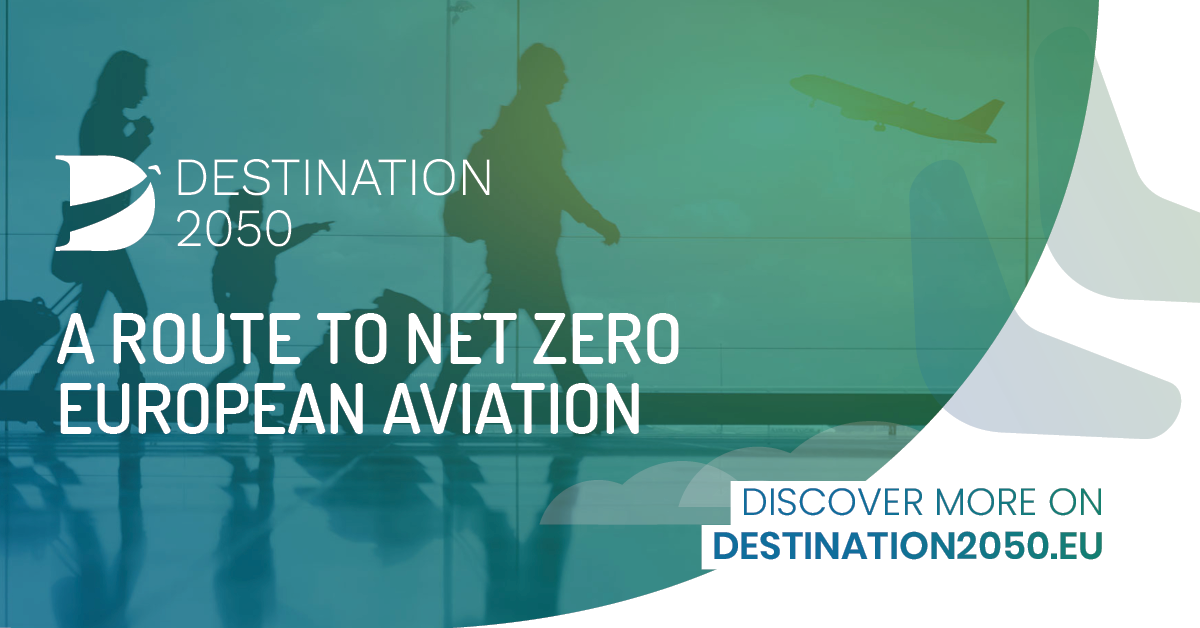
Today sees the launch of the first pan-European industry-wide plan to reach net zero CO2 emissions, Destination 2050. The report provides a vision and path for CO2 reduction in aviation across Europe and around the world.
The ambitious plan and related commitments laid out by Europe’s airlines, airports, aerospace manufacturers and air navigation service providers shows collective leadership of the European aviation sector to reduce CO2 emissions, with the goal of making leisure and business air travel in Europe, and globally, more sustainable in the long term.
The Destination 2050 report shows how net zero CO2 can be reached through a combination of four key measures, aligning European aviation with EU climate goals – subject to securing the required supporting policy and financing framework at EU and national level. These four measures include:
• Improvements in aircraft and engine technologies could achieve emission reductions of 37%
• Using sustainable aviation fuels (SAFs) could achieve emission reductions of 34%
• Implementing economic measures could achieve emission reductions of 8%
• Improvements in air traffic management (ATM) and aircraft operations could achieve emission reductions of 6%
The Destination 2050 report further assumes an impact on demand due to the above measures, resulting in the net zero CO2 goal. Nevertheless, European air passenger numbers are projected to grow on average by approximately 1.4% per year between 2018 and 2050 without compromising the sector’s ability to reach net zero CO2 emissions by this point.
The report also shows that to achieve the net zero goal, quick decision action by Governments and industry will be needed, incentivising investment in innovation and implementing the necessary operational transitions.
The initiative is led by five European aviation associations – Airports Council International Europe (ACI EUROPE), AeroSpace and Defence Industries Association of Europe (ASD Europe), Airlines for Europe (A4E), Civil Air Navigation Services Organisation (CANSO) and European Regions Airline Association (ERA). As an ASD member, ADS supports the report and its objectives.
Vincent De Vroey, ASD Civil Aviation Director said:
“This is a pivotal moment for sustainability and innovation for many industries, including aviation. The European aviation sector will take a strong leadership and collaboration position through its strengths in innovation and technology. The achievement of the goals of this roadmap is possible provided that the EU and national governments play their part through increased public funding for civil aviation research & technology. This will also have wider benefits globally, taking into account the European aeronautics industry’s global leadership.”





